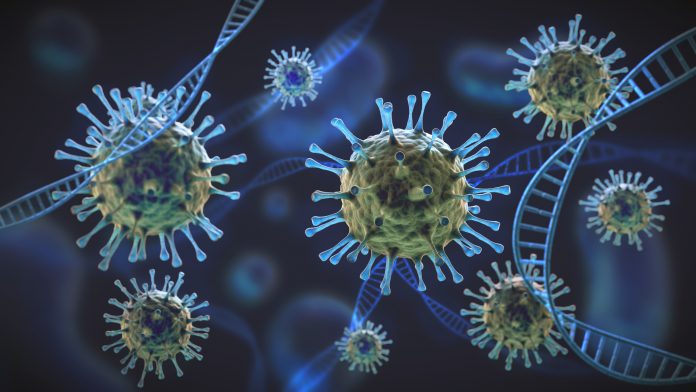
A new study reveals higher incidence of mental illness for up to a year following severe COVID-19 in unvaccinated people. Vaccination appeared to strongly mitigate mental illness. For example, the incidence of depression among the unvaccinated after hospitalization for COVID-19 was up to 16.3 times higher. This elevation in mental illnesses rates remained high up to a year later.
The University of Bristol-led study, published in JAMA Psychiatry this week, investigated how COVID-19 vaccination status was linked with subsequent mental illnesses as related to time of diagnosis. They used data from more than 18 million people.
COVID-19 has been associated with mental illnesses in both hospital and population-based studies. However, these researchers say, “Until now, there was limited evidence about the association of COVID-19 with mental illnesses when individuals had received COVID-19 vaccination.”
The team included researchers from University of Bristol Medical School, University College London (UCL), University of Oxford, University of Cambridge and Swansea University Medical School. The researchers analyzed the medical records of 18,648,606 adults aged between 18 and 110 years and registered with a GP in England.
Among the participants some were studied before vaccination was available. Their average age was 49 years, 50.2 percent were female (9,363,710), and 1,012,335 had a confirmed COVID-19 diagnosis.
The authors also studied a vaccinated cohort including 14,035,286 adults, of whom 866,469 had a confirmed COVID-19 diagnosis, with an average age of 53 years and 52.1 percent female (7,308,556), and an unvaccinated cohort including 3,242,215 adults, of whom 149,745 had a confirmed COVID-19 diagnosis, with an average age of 35 years and 42.1 percent female (1,363,401).
The researchers then compared the incidence of mental illnesses in people before and after a COVID-19 diagnosis. Mental illnesses they tracked included depression, general anxiety, post-traumatic stress disorder, eating disorders, addiction, self-harm, and suicide.
The team found that the incidence of most of these conditions was higher one to four weeks after COVID-19 diagnosis, compared to the incidence before or without COVID-19. This elevation in mental illnesses rates was mainly seen after severe COVID-19 that led to hospitalization. The team, meanwhile, found little elevation in mental illness after mild COVID-19.
The findings, the group said, add to a growing body of evidence highlighting the higher risk of mental illnesses following COVID-19 diagnosis, and the benefits of vaccination in mitigating this risk.
“Our findings have important implications for public health and mental health service provision, as serious mental illnesses are associated with more intensive healthcare needs and longer-term health and other adverse effects, said Venexia Walker, senior research fellow in Epidemiology at Bristol Medical School: Population Health Sciences and one of the study’s lead authors.
Jonathan Sterne, professor of medical statistics and epidemiology at the University’s Bristol Medical School, PHS, director of the NIHR Bristol Biomedical Research Center, and one of the study’s authors, added: “We have already identified associations of COVID-19 with cardiovascular disease, diabetes and now mental illnesses.”





